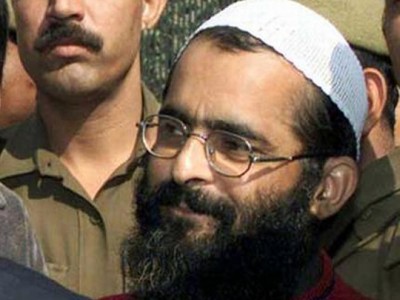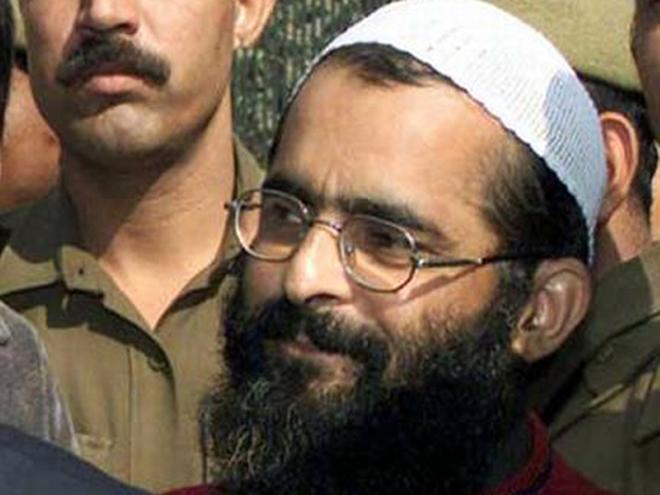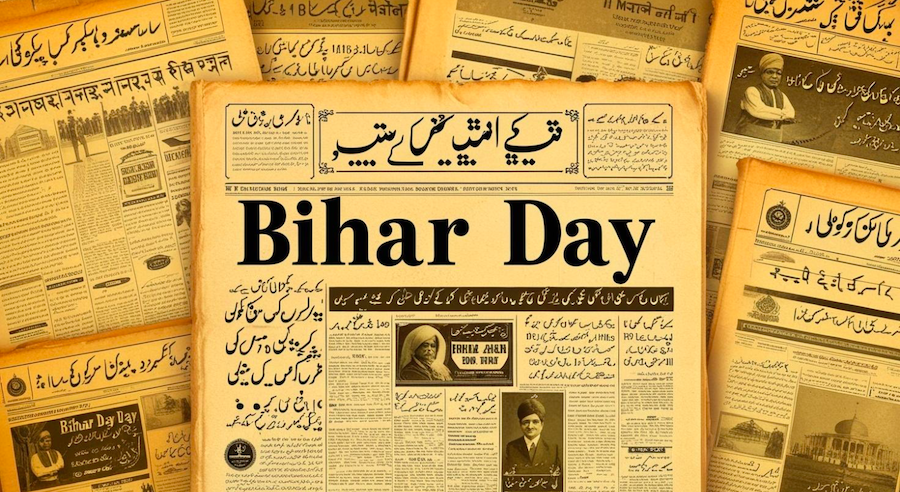Mushtaq ul Haq Ahmad Sikandar for BeyondHeadlines
Afzal Guru the main accused in the 13 December, 2001 Indian Parliament Attack Case was sent to gallows in Tihar Jail on 9th February 2013 in utmost secrecy and clandestine manner by the Indian State, for a crime in which there was circumstantial evidence against him. The media, his family and civil society wasn’t informed about this ill fated decision of haste implemented to satisfy the collective conscience of India. Twenty Nine years ago on 11 February 1984 another stalwart of Kashmir’s freedom Muhammad Maqbool Bhat was hanged in the same jail and now the history has repeated itself barring the fact that Maqbool Bhat was an ideologue of Kashmiri Resistance and Freedom while as Police coercion led Afzal Guru to become a part of the circumstantial evidence that led to his execution. But in both cases the courts acted in haste and political executive overrode the judiciary in which the Justice became a casualty. Afzal was sent to gallows not only to satisfy the collective bloodlust conscience of Indian masses but more for denying a vote bank issue to its opponents by Congress. With its opponents alleging that Congress indulges in Muslim appeasement and is soft on Terrorism, Congress with elections just a few months away is acting in utmost manner to please the Hindutva fascists and deny them the major issues to be used for whipping up the communal frenzy for election campaigns.
With this execution of Afzal Kashmiris got a new hero and a new martyr, who will keep inspiring millions and new generations yet to be born. Today when most countries of the world are against the implementation of the capital punishment why Indian State is carrying them out and what message it wants to give? I can infer a few reasons for this type of stance.

1. Indian State is biased against the minorities and doubly biased when it comes to Muslims of India in general and Kashmiris in particular. The utmost secrecy maintained in case of execution of Ajmal Kasab on 21st November, 2012 and Afzal Guru on 9th February 2013 point towards the same, because the execution of Dhananjoy Chatterjee on 14 August, 2004 following his conviction over the rape and murder of a 14-year-old girl in 1990 followed a public discussion. In these both cases no public discussion was allowed and executions were carried out in haste without giving any chance to the public to react. These types of actions give a message that democracy is being retrograded in India. In case of Kasab it was evident that he was firing and responsible for innocent killings, but in Afzal’s case nothing substantial was proved.
2. The judiciary is becoming a hand maiden of the political executive and is fast loosing its independent character with the result that Justice is becoming a casualty. Whether be it the execution of Afzal Guru or Life sentences awarded to Kashmiri convicts the judiciary is being used as a tool against the political opponents and dissidents.
3. The Congress government is trying to appease the blind Hindu masses by execution of the ‘perceived enemies’, thus trying to make its electoral image larger than life. Also by acting with an iron fist against the ‘enemies of the nation’ Congress is trying to reap the sympathy vote of the masses.
4. Targeting the Muslims particularly whether be it Owaisi brothers of Hyderabad, implicating Muslim youth falsely in terror related cases or executing Afzal Guru, Congress is trying to give a message to the Muslims, that they can’t stand against or resist the dictates of Congress regime. It is either with us or you are against us, there is no third option left. If Afzal was such a threat to national conscience and security then why not Balwant Singh Rajoana guilty for the 1995 assassination of Punjab chief minister Beant Singhbe executed too? Muslims are an easy target and their stereotypical portrayed image of being potential terrorists fits well in the plan of their judicial executions.
5. The National Conference led coalition with Congress, is too weak and fragile to stand against or protest the execution of Afzal Guru, unlike Tamil Nadu state assembly that has gone on record in demandingmercy for Murugan, Santhan and Perarivalan for the 1991 assassination of former prime minister Rajiv Gandhi. They haven’t been sent to gallows yet and there is remote possibility of carrying our capital punishment against them.
But what do these inferences point towards? They point towards the fact of bleak, dark and gloomy times ahead. A dark time that will not only be a bane for Indian Muslims or Kashmiris, but for all the conscious, selfless, patriotic Indians who witness India as a great Nation of this century that believes in the lofty principles of democracy, secularism, republicanism and where rule of law prevails. Their dreams will soon be shattered and their consciences bruised and dejected because India is moving at a fast pace towards totalitarian fascism, where no dissent would be tolerated and no human rights respected. Afzal Guru’s execution has been a watershed towards that retrograding process.
For me as a Kashmiri, freedom of speech, assembly and protest were denied since the freedom of India in 1947. But now these rights would become a casualty for Indians too. They would experience Kashmir everywhere in India, if judicial murders, fascist national and political expediency override everything and are given a freehand.
As far as the people of Kashmir are concerned they must be thankful to the Indian State who created and carved a hero out of an ordinary mortal who will continue to inspire resistance and represent a symbol of hatred against India. If Indian State is happy to have satisfied the collective conscience of Indians and rendered Justice to the victims of the Parliament attack case, then why is it afraid to hand over the dead body of Afzal and mortal remains of Maqbool Bhat to Kashmiris? The denial of the same is helping reinforce the resistance and hate against Indian occupation.
Afzal’s execution will certainly have its impact on the Kashmiri youth, like its predecessor Maqbool Bhat’s execution had and youth may adopt various ways and means of resistance against the Indian State in Kashmir. It is what Indian State wants to justify the presence of its millions of troops at every nook and cranny of Kashmir. Since year 2008 there have been reports coming up in the media frequently that the local police and army through custodial torture and other means of coercion are trying to push Kashmiri youth towards militancy again. This serves their purpose, because they can then only justify the innocent extra judicial murders, fake encounters, disappearances and arson in the name of fighting militancy and terrorism. This fight also renders them eligible for medals of shame to be bestowed by the Indian State, the promotions and other monetary benefits. They don’t want to wash off hands from such booty, hence the State and its agencies are also responsible for creating future militants for their own benefits.
Afzal’s execution will also be politically cashed by the separatists and resistance leaders for their own political mileage. How they are going to use it and what benefits they will reap from it only time will tell. But vested interests both in State and its institutions and Separatists want to exploit the hanging of Afzal for their own benefits and there are numerous chances for Kashmir burning once again, in which the blood of innocents will spill on the streets at the hands of trigger happy men in uniform.
As far as the struggle of Kashmiris against Indian State is concerned it will continue unabated and none can surmise about the shape of things to come in the next few months, but one thing is clear that through this execution of Afzal Guru Indian State has granted new lease of life to the resistance in Kashmir, whose demise they were foolishly trying to celebrate. I would like to end this piece with the words from a statement of Maqbool Bhat that he gave before a special court in Pakistan that sums the insignificant role of judiciary in trying to stop a resistance movement. Bhat says “If the struggle for freedom was to be stopped by the court rulings there would have been hardly any free nation on earth today. If the evolution of civilization, democracy and freedom was to be prevented by the existing judicial or administrative system no revolution would have taken place from the beginning of history. Decisions about the movements for welfare and freedom of people are not made in the existing courts, but the evolutionary process of human history gives the verdict of these movements. For the courts themselves are the product of that system these movements aim to change”.
(Mushtaq Ul Haq Ahmad Sikander is Writer-Activist based in Srinagar, Kashmir and can be reached at sikandarmushtaq@gmail.com)










